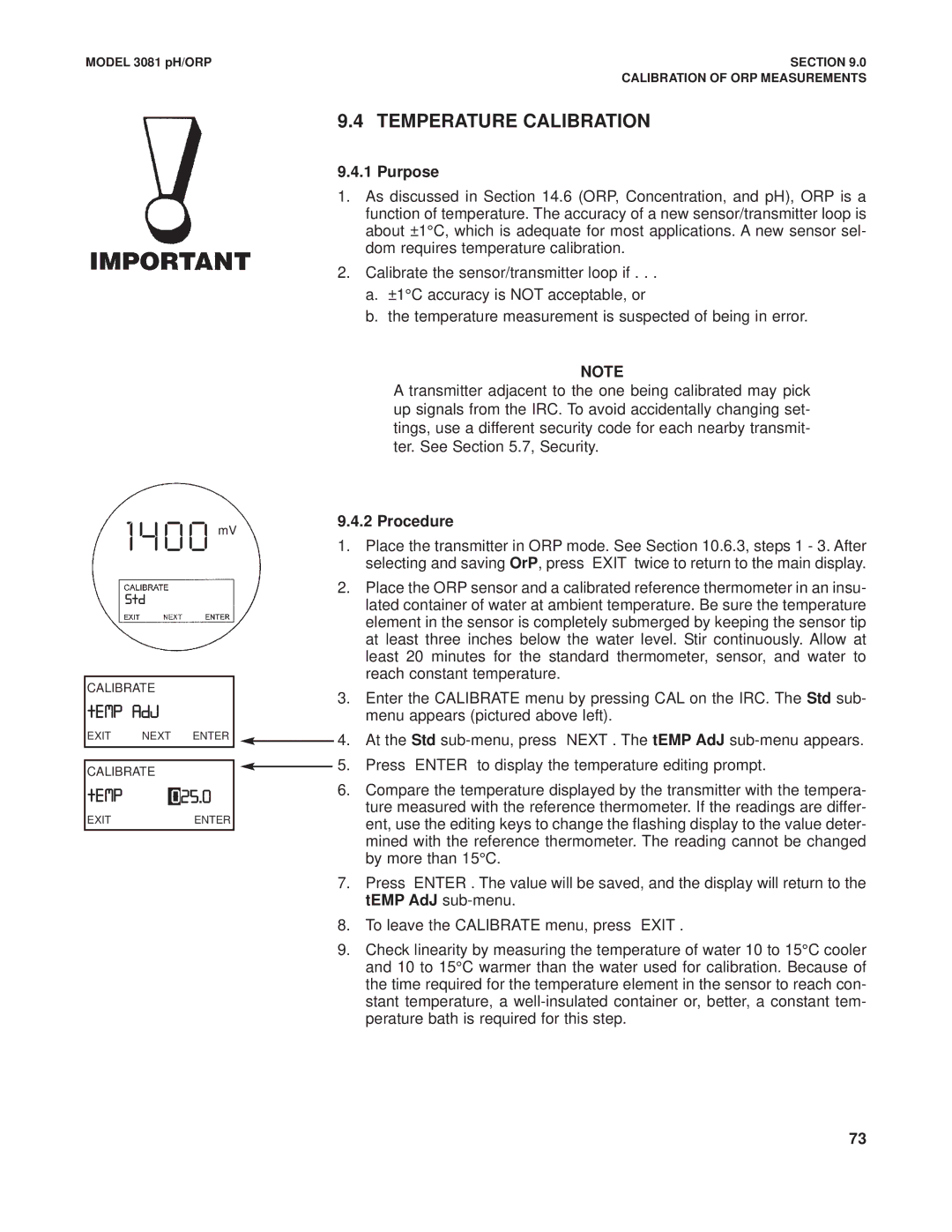
MODEL 3081 pH/ORP | SECTION 9.0 |
| CALIBRATION OF ORP MEASUREMENTS |
9.4 TEMPERATURE CALIBRATION
9.4.1 Purpose
1.As discussed in Section 14.6 (ORP, Concentration, and pH), ORP is a function of temperature. The accuracy of a new sensor/transmitter loop is about ±1°C, which is adequate for most applications. A new sensor sel- dom requires temperature calibration.
2.Calibrate the sensor/transmitter loop if . . .
a.±1°C accuracy is NOT acceptable, or
b.the temperature measurement is suspected of being in error.
NOTE
1 4 0 0 mV
Std
CALIBRATE
tEMP AdJ
EXIT NEXT ENTER
A transmitter adjacent to the one being calibrated may pick up signals from the IRC. To avoid accidentally changing set- tings, use a different security code for each nearby transmit- ter. See Section 5.7, Security.
9.4.2 Procedure
1.Place the transmitter in ORP mode. See Section 10.6.3, steps 1 - 3. After selecting and saving OrP, press EXIT twice to return to the main display.
2.Place the ORP sensor and a calibrated reference thermometer in an insu- lated container of water at ambient temperature. Be sure the temperature element in the sensor is completely submerged by keeping the sensor tip at least three inches below the water level. Stir continuously. Allow at least 20 minutes for the standard thermometer, sensor, and water to reach constant temperature.
3.Enter the CALIBRATE menu by pressing CAL on the IRC. The Std sub- menu appears (pictured above left).
![]() 4. At the Std
4. At the Std
CALIBRATE
tEMP
EXIT
025.0
ENTER
![]() 5. Press ENTER to display the temperature editing prompt.
5. Press ENTER to display the temperature editing prompt.
6.Compare the temperature displayed by the transmitter with the tempera- ture measured with the reference thermometer. If the readings are differ- ent, use the editing keys to change the flashing display to the value deter- mined with the reference thermometer. The reading cannot be changed by more than 15°C.
7.Press ENTER . The value will be saved, and the display will return to the tEMP AdJ
8.To leave the CALIBRATE menu, press EXIT .
9.Check linearity by measuring the temperature of water 10 to 15°C cooler and 10 to 15°C warmer than the water used for calibration. Because of the time required for the temperature element in the sensor to reach con- stant temperature, a
73
